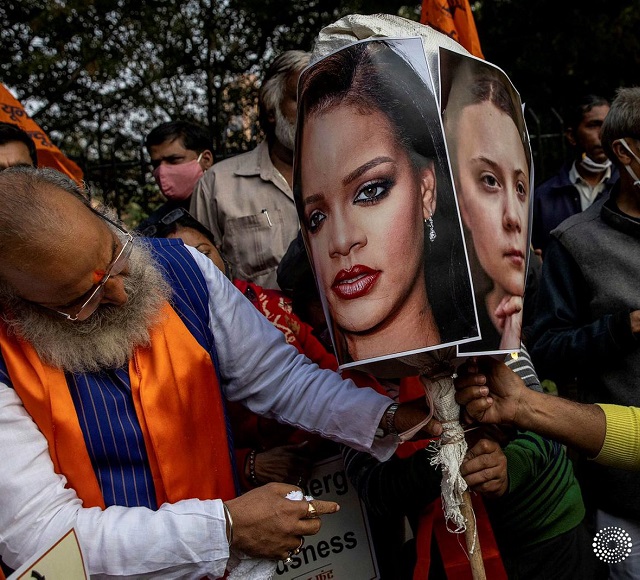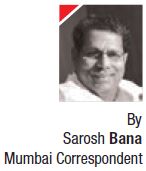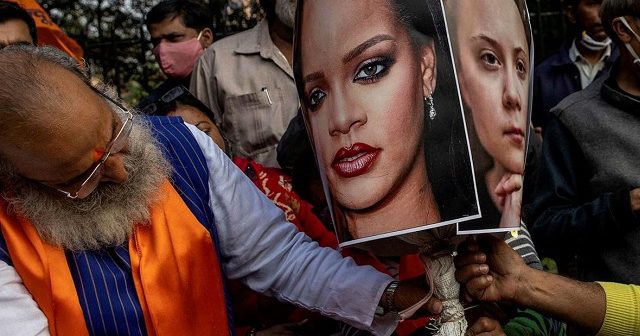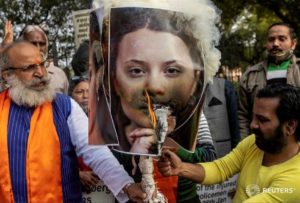
 It was a prolonged stand-off, with India’s government and San Francisco-based Twitter seeking to stare each other down. Eventually, Twitter blinked.
It was a prolonged stand-off, with India’s government and San Francisco-based Twitter seeking to stare each other down. Eventually, Twitter blinked.
After a fortnight of holding its ground, saying the micro-blogging platform was committed to “defending protected speech and freedom of expression”, Twitter’s India office ultimately succumbed to government threats to withhold or suspend almost all the 1,435 accounts the government wanted it to block in the wake of the widespread on-going farmer protests.
The irony of the action was not lost on anyone. On one hand, the right-wing Bharatiya Janata Party (BJP)- led government sponsors legions of social media trolls who vehemently pursue its politics of hate and intolerance against those deemed critics of its policies. Indeed, it is not trolls alone, but even ministers and party officials who routinely abuse and revile identified dissenters, who may include Opposition politicians, journalists, civil activists and libertarians. The protesting farmers have been dubbed terrorists and separatists, and their political and other supporters have been branded anti-nationals and seditious. In his address to Parliament, Prime Minister Narendra Modi called them “professional protestors” who were “parasites”.
On the other, the government directed Twitter to block accounts of some of those very people it deems critics of government policy.
The tussle began as the government became unsettled by foreign celebrities like international pop singer Rihanna, Sweden’s teenaged climate activist Greta Thunberg and US Vice President Kamala Harris’s niece, Meena Harris, who have millions of followers on Twitter, voicing support to Indian farmers protesting in and around the capital city of New Delhi for the past three months against three new farm laws they say are against farmer interest.
The government was particularly outraged by information tweeted by Thunberg that it contended was passed on to her by overseas Indian factions hostile to India and its government. The Delhi police were directed to file cases against “unknown persons” that ostensibly included Thunberg. The charges included sedition, for which Indian law provides capital punishment. This step was roundly ridiculed by many Twitterati who mocked the government for feeling undermined by one tweet from a teenager, and wanting to avenge her with police action.
The government targeted Twitter also because its CEO, Jack Dorsey, ‘liked’ tweets that were supportive of Rihanna’s stand on the farmers’ agitation.
The mounting criticism on social media prompted the Ministry of Electronics and Information Technology (MeitY) on 31 January to exercise its powers under Section 69 of the IT Act and pass an emergency order asking Twitter to block 257 accounts. In its notice, the ministry indicated that these handles were “spreading misinformation” about the farmers’ protest and this had the potential to “lead to imminent violence affecting the public order situation in the country”. Twitter initially complied, but six hours later reversed its ban on many of the users on grounds that they did not violate its policy of free speech.
The government hit back by instructing Twitter to block the accounts again, threatening it with legal action, which would include up to seven years in prison, if it refused. The notice to Twitter alleged that the tweets considered offensive were part of a “motivated campaign to abuse, inflame and create tension in society on unsubstantiated grounds”.
On 4 February, the Ministry issued a fresh notice to Twitter to block nearly 1,200 accounts.
In a blogpost, Twitter reaffirmed that the accounts it had not blocked, either on 31 January or after the 4 February notice, were “consistent with their policies on free speech” and said the platform believed “that the notices sent to it were not consistent with laws in the country”.
Though the social media giant maintained it had “suspended more than 500 accounts” and had “withheld a portion of the accounts identified in the blocking orders”, it clarified in a blog: “In keeping with our principles of defending protected speech and freedom of expression, we have not taken any action on accounts that consist of news media entities, journalists, activists and politicians. To do so, we believe, would violate their fundamental right to free expression under Indian law.”
IT Minister Ravi Shankar Prasad countered Twitter’s argument by announcing in Parliament, “There is freedom of speech, but Article 19A says that it is subject to reasonable restrictions.” He declined to meet Twitter officials who sought a meeting with him to seek clarity on the government’s directions, but had Twitter meet his ministry’s officials instead.
In the meeting, the platform’s vice-president of global public policy, Monique Meche, and deputy general counsel and vice-president (legal), Jim Baker, explained why their company had not blocked certain content despite the government’s notices. Following the meeting, MeitY issued a statement: “A deep sense of disappointment at seeing Twitter side not with ‘freedom of expression’, but rather with those who seek to abuse such freedom and provoke disturbance to public order, was conveyed to the Twitter representative.”
Twitter capitulated soon after the meeting, blocking most of the accounts it was asked to and which included those of many Opposition leaders. It acknowledged having taken a range of enforcement actions, including permanent suspension in certain cases. The Twitter executives also agreed to some structural changes at the meeting where MeitY officials had pushed for these changes as part of efforts to “better manage communications” between the government and the global team of Twitter.
The Twitter issue has raised concerns in India on what is perceived to be the government’s partisan actions. There had been no similar government reprisal against the social media and social networking giant, Facebook, which had recently been exposed for its collusion with the Indian authorities. An investigative report by a reputed American broadsheet had unravelled the searing discontent of Facebook India employees over the company’s brazen partisanship that raised questions over its role in the conduct of elections in the country and its laxity towards the bigoted and inflammatory posts of BJP leaders. That exposure had also revealed the communal bias and political affiliation of its then public policy director in India, Ankhi Das. Das had been reported to have told her staff that “punishing violations by politicians from Mr. Modi’s party would damage the company’s business prospects in the country”.
The government faced rebuke in the recently released Democracy Index that shows the state of democracy worldwide for 167 countries. India slipped from 27th position in 2014, the year the BJP-led government came to power, to the 53rd position in the Index’s 2020 global ranking, due to ‘democratic backsliding’ by authorities and ‘crackdowns’ on civil liberties. The report also said the Narendra Modi-led government has “introduced a religious element to the conceptualisation of Indian citizenship, a step that many critics see as undermining the secular basis of the Indian state”.
The government’s perceived ham-handedness has also been highlighted by India’s being branded “the Internet shutdown capital of the world”. The government had denied access to the Internet to the Muslim-majority state of Jammu and Kashmir for 233 days, from 4 August 2019 to 4 March 2020, after abrogating laws governing the state. The country has besides seen more than 400 internet shutdowns in the past four years. Seven incidents of internet shutdowns transpired in the past one month and five of those were around farmers’ protest sites in north India.
These Internet shutdowns that hamstrung the protesting farmers evoked strong responses across the world. The US State Department said it considered unhindered access to information, including the internet, a hallmark of a thriving democracy.







